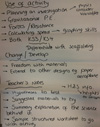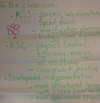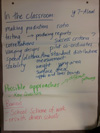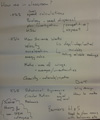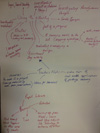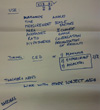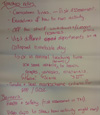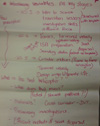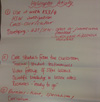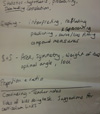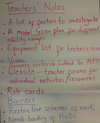Skip over navigation
Or search by topic
Number and algebra
Geometry and measure
Probability and statistics
Working mathematically
Advanced mathematics
For younger learners
Trying Out a STEM Activity
Age 11 to 18
Feedback from the teachers workshops (morning session, September 30, 2011)
Teachers were asked to try the Helicopter activity, then reflect on it from the perspective of their subject, using these questions as a stimulus:
- How might you use this activity in the classroom?
- which topics/students?
- how would you change or develop it?
- What would you want to see in the teachers' notes to help teachers who aren't convinced about STEM to have a go?
- Do you see any barriers that would get in the way of teachers using the task?
- how could NRICH support teachers in overcoming such barriers?
Group notes (click on the thumbnails for larger versions)



